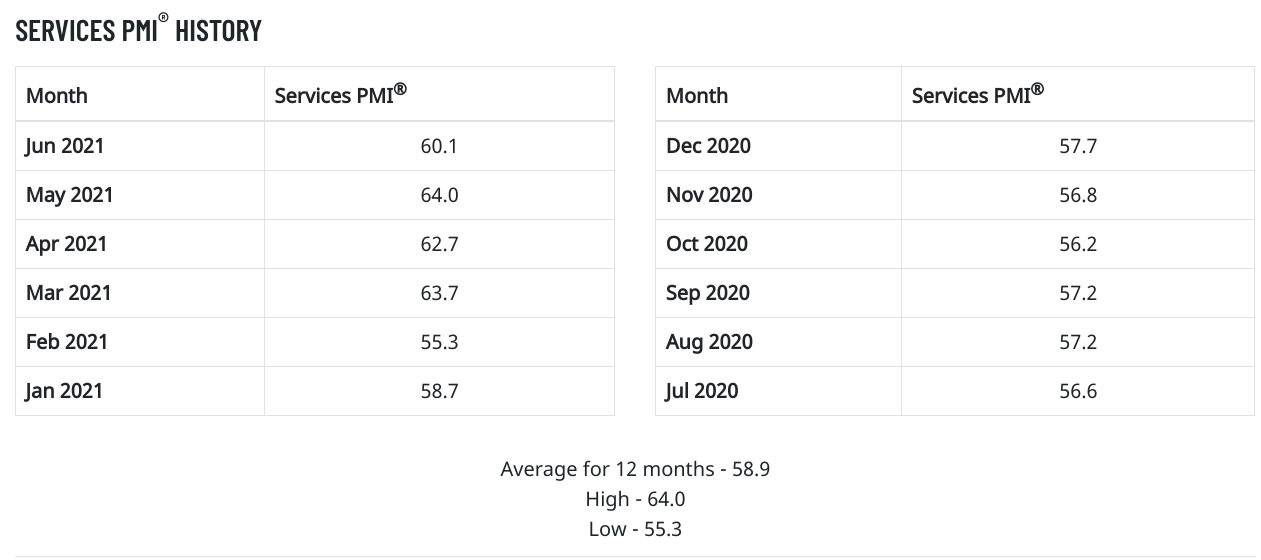Service Sector Growth Slows in June After May’s Record Expansion

Image source: Institute for Supply Management
By Matt Ott
SILVER SPRING, Md. (AP) — Growth in the services sector, where most Americans work, slowed in June following record expansion in May.
The Institute for Supply Management said Tuesday that its monthly survey of service industries retreated to a reading of 60.1, following an all-time high reading of 64 in May. Any reading above 50 indicates the sector is expanding.
It’s the 13th straight month of expansion in the services sector following a two-month contraction in April and May of last year as businesses were forced to shut down during the early stages of the coronavirus pandemic.
After five consecutive months of expansion, the employment index fell into contraction territory in June with a reading of 49.3, down from May’s 55.3, suggesting many companies are still struggling to hire enough workers.
The Labor Department reported an encouraging burst of hiring in its jobs report last week, 850,000 jobs added in June, well above the average of the previous three months. Hiring in June was particularly strong in restaurants, bars and hotels, which collectively absorbed heavier layoffs from the recession. Those businesses added 343,000 jobs, but it may not be enough.
Comments from respondents continued to focus on supply chain issues, supply shortages and staffing difficulties.
“Manpower has been a concern,” said one; another commented: “Lack of labor is killing us.”
One group benefiting from the plentiful jobs is teenagers. An acute labor shortage — especially at restaurants, tourism and entertainment businesses — has teenage workers in high demand. Lifeguarding, bussing tables and other jobs are paying $15 to $17 or more in many places, luring young people into the workforce in numbers not seen since before the Great Recession.
The Labor Department says that 33.2% of Americans aged 16-19 are working, the highest percentage since 2008. Though that number ticked down slightly in June, it’s still higher than the pre-pandemic figure.
New U.S. manufacturing data released last week showed that demand continued to be so strong that companies are struggling to keep up with orders. Supply chain shortages and difficulty finding enough workers contributed to a backlog of orders and late deliveries in the manufacturing sector.
The story is similar in the services sector, where delivery times have improved but are still slow. Backlogged orders also piled up in June, with the index rising to 65.8 from 61.1 as companies continue to struggle to keep up with demand.
_____
Source: AP News



